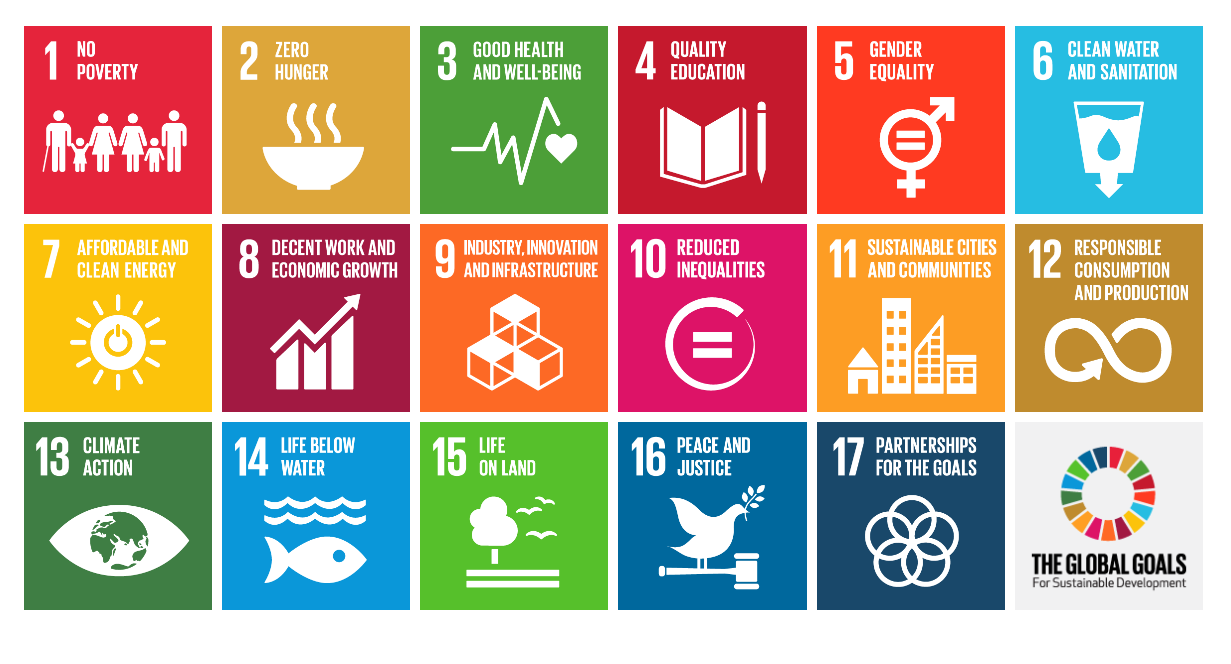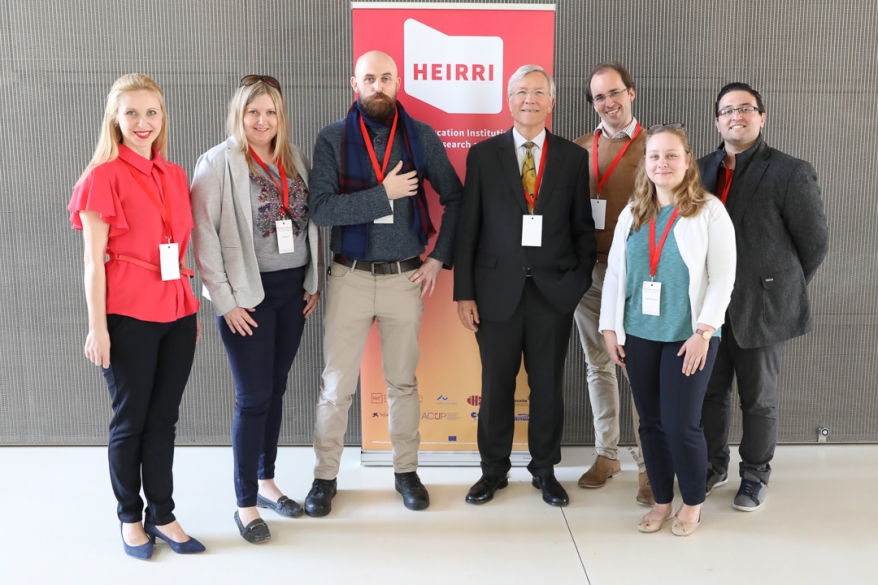Eurodoc attended the 2nd HEIRRI Conference “Education towards a responsible society, transforming universities through RRI”
HEIRRI (Higher Education Institutions and Responsible Research and Innovation) is a European project, funded under the Horizon 2020 programme. The project aims to promote the integration of Responsible Research and Innovation (RRI) within the education of future scientists, engineers and other professionals involved in the Research and Innovation (R&I) process.
What is RRI?
It is a new approach, in which all stakeholders (researchers, citizens, policy makers, business, third sector organisations, etc.) work together during the whole research and innovation process in order to better align both the process and its outcomes with the values, needs and expectations of society.

Key actors in Research & Innovation process
The European Commission has defined 6 key issues for the further development of RRI.

Specific key issues of RRI in Research & Innovation process
Why is it needed?
Science has the potential to change the world. Science and technology bring knowledge, generate well-being and contribute to development. But they also set out ethical dilemmas, lead to undesirable effects and generate new challenges.
For example...The invention of plastic materials has solved many problems. But on the other hand, its excessive and uncontrolled use has posed new problems such as accumulation of plastic residues. To face this challenge, we will need a more responsible production and consumption, greater sensitivity of reuse and recycle, and an intensification of the search for similar materials with less of an environmental impact.
(Source: HEIRRI Training Programmes)
How could science and society benefit from this approach?
RRI is an ambitious challenge for the creation of a Research and Innovation policy driven by the needs of society and engaging all societal actors via inclusive participatory approaches. Society is facing many challenges today. These social problems are the general factors that affect and damage society such as climate change, ageing populations, mass immigration ect. RRI has the potential to make R&I investments more efficient while focusing on global societal challenges.
For Horizon 2020, the EU has identified 7 priority challenges where targeted investment in research and innovation can have a real impact benefitting the citizen:
- Health, demographic change and wellbeing
- Food security, sustainable agriculture and forestry, marine and maritime and inland water research and the bioeconomy
- Secure, clean and efficient energy
- Smart, green and integrated transport
- Climate action, environment, resource efficiency and raw materials
- Europe in a changing world - inclusive, innovative and reflective societies
- Secure societies - protecting freedom and security of Europe and its citizens

Key global goals for sustainable development
A challenge-based approach will bring together resources and knowledge across different fields, technologies and disciplines, including social sciences and the humanities. Social and ethical controversies will be widely discussed by actors in order to bring the critical thinking and foster social and economic prosperity.
Are researchers prepared for that?
Not yet. The way how to incorporate RRI into the everyday practice of researchers and innovators is often unknown. That is why the consortium of the HEIRRI project has firstly collected existing practices, exemplary cases and other documentation of RRI training in higher education. And secondly, based on this overview, the HEIRRI project will design and develop courses and training materials which can be adapted to different contexts and audiences in order to teach RRI.
The HEIRRI Training Programmes and formative materials are designed for different educational levels (bachelor’s, master’s, PhD, MOOC, Summer schools, train-the-trainer, secondary school teachers). These educational resources have been based on innovative and participative methodologies (following a “Problem-based learning” approach), which are presented in multimedia formats, and are available at the RRI tools website.
As the project is getting closer to its end, the 2nd and last HEIRRI conference was the best occasion to present their activities and work accomplished during the three years. The format of the conference was prepared in an interactive manner including presentations, panel discussions, project-based sessions and hands-on workshops. There was also a speed-dating session with 17 initiatives, and “poster walks” during the breaks.
The conference gathered around 150 people from 43 countries in Vienna, Austria on the 27th of April 2018. Eurodoc was represented there by Gareth O’Neill, Eva Hnatkova, Farouk Allouche, Mathias Schroijen, Margaux Kersschot and Iryna Degtyaryova.
We were glad to have the opportunity to be present as this event that enriched, empowered and inspired all of us. Now, we would like to share our experience with you!
Eva Hnatkova
Vice-President
European Council of Doctoral Candidates and Junior Researchers
Photos by HEIRRI © Katharina Schiffl

